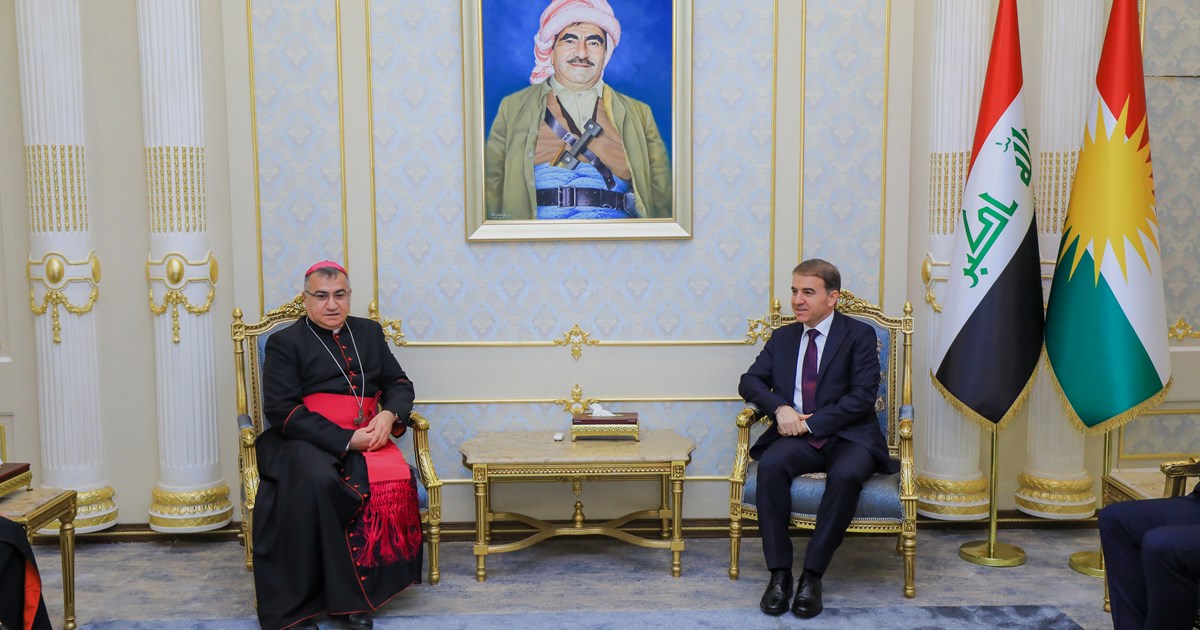Deputy Speaker Hawrami welcomes Christian religious leaders

Kurdistan Parliament Deputy Speaker Dr. Hemin Hawrami on 7 July met with archbishops and bishops of Kurdistan and Iraq’s Christian denominations. He welcomed Bashar Matti Warda, Chaldean Catholic Archbishop of Erbil; Nicodemus Daoud Sharaf, Syriac Orthodox Archbishop of Mosul; Npnail Nizar Saman, of the Syriac Catholic Church; and Abris Youkhana, Bishop of the Assyrian Church of the East in Erbil.
The meeting was also attended by Romeo Hakari, Janan Jabar, and Robina Omailek (all National Union Coalition party) and Farid Yaqub Eliya (Al-Rafidain party).
They discussed the peaceful co-existence that Kurdistan Region enjoys between its diverse religious and ethnic communities. They also discussed the steps that are being taken to draft the Kurdistan Constitution to ensure that it will protect the rights of all the original communities of Kurdistan.
While the rights of Kurdistan Region’s ethnic and religious components are already enshrined in law, Dr. Hawrami stressed the need to discuss them and determine them in the future Constitution as well. He said, “The Christians of Kurdistan Region are an important part of our society’s fabric and have shared Kurdistan’s joys and sufferings.”
The Deputy Speaker explained the political and legal steps that President Nechirvan Barzani and the Kurdistan Parliament have taken to restart the Kurdistan Constitution drafting process, and for this purpose some legal advisory committees have been established in Kurdistan Region's presidency.
Deputy Speaker Hawrami said that the Kurdistan Parliament firmly believes that Kurdistan Region should have its own Constitution, and all sides agree that within it the rights of Kurdistan’s ethnic and religious components must be protected. In the drafting process, the drafting committee will include representatives of all the communities who will put forward their demands and wishes.
The Christian religious leaders commended Kurdistan’s peaceful coexistence and said that Kurdistan is a model for this region of stability and peaceful coexistence between ethnic and religious communities, and is respected for these values both nationally and abroad.

